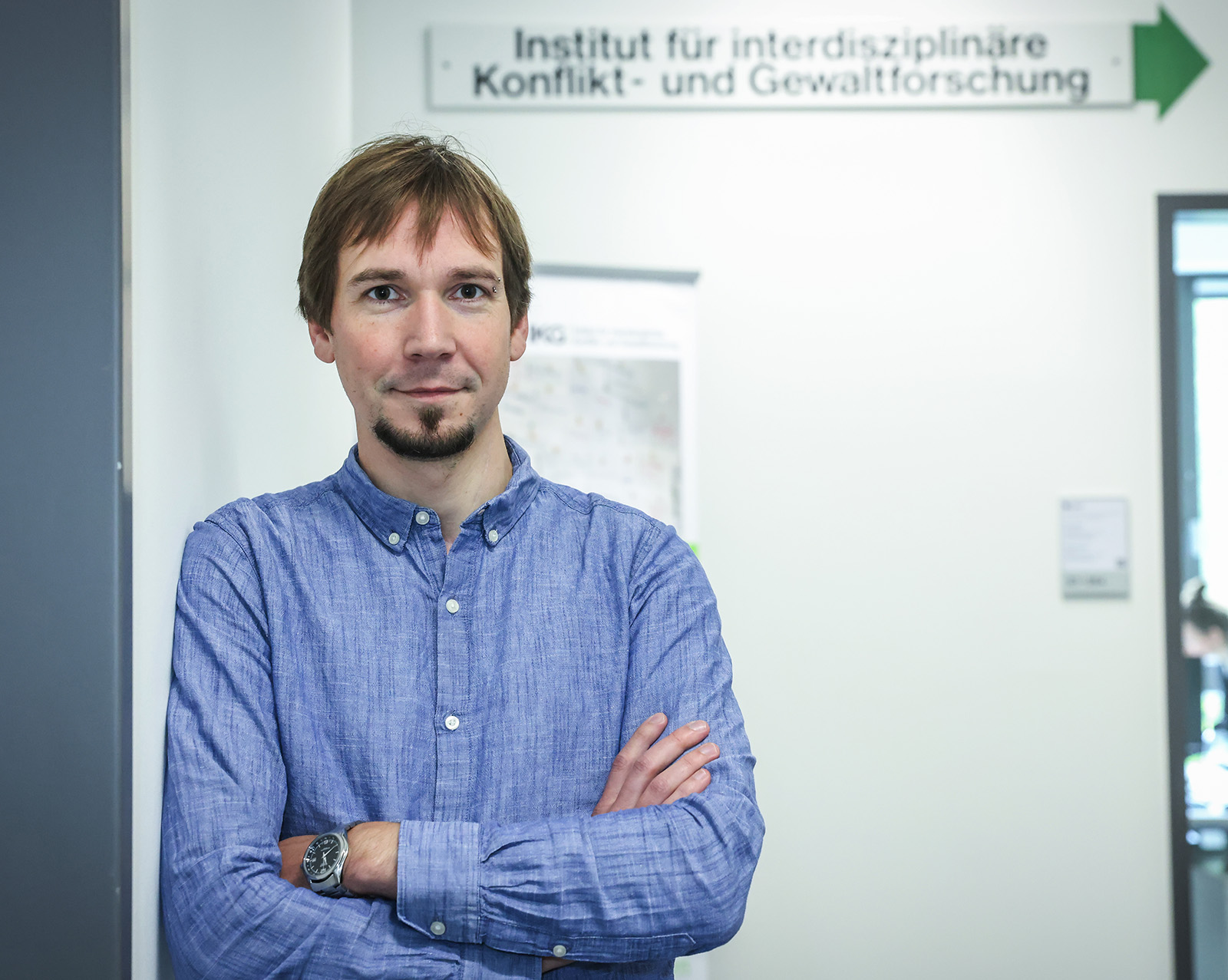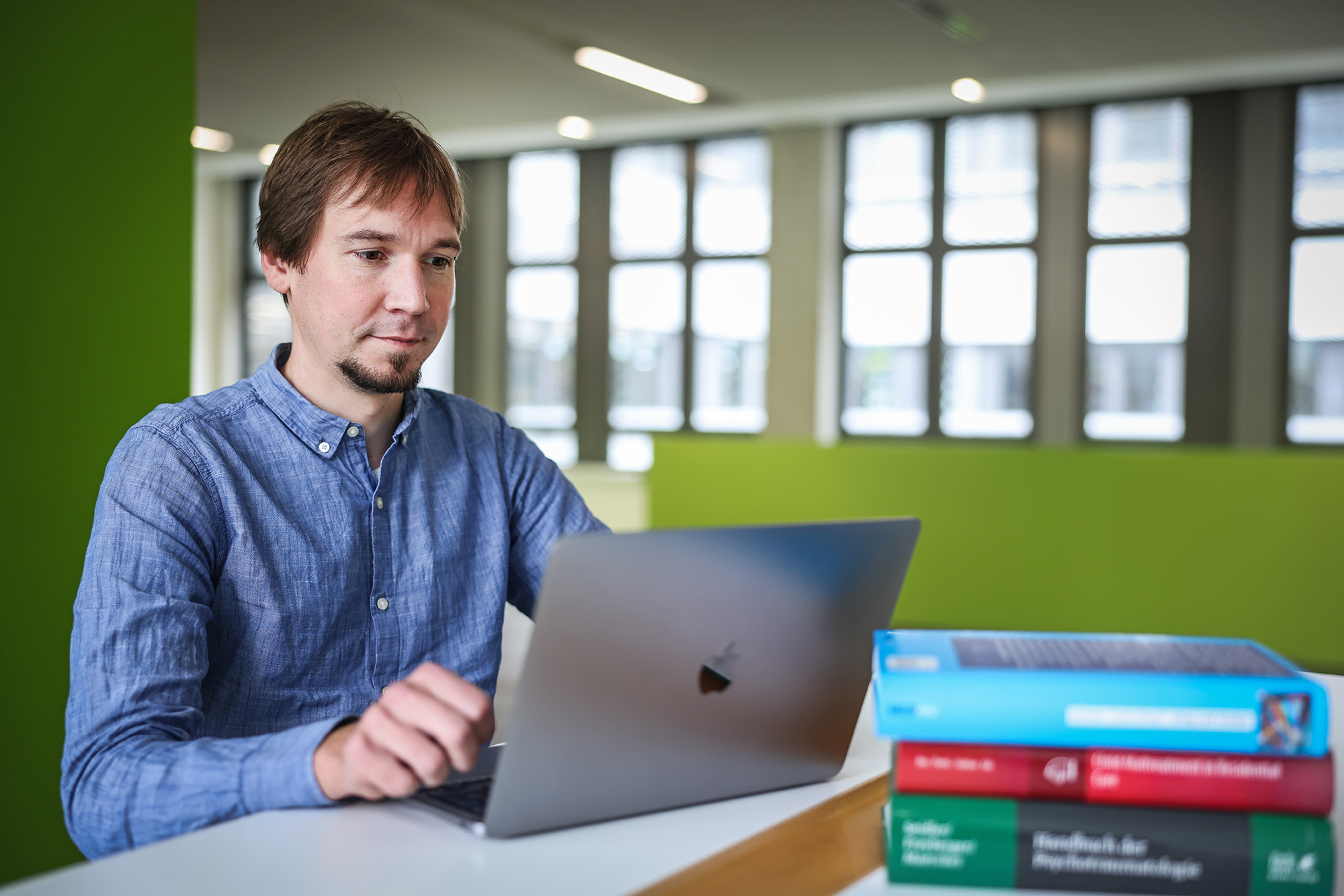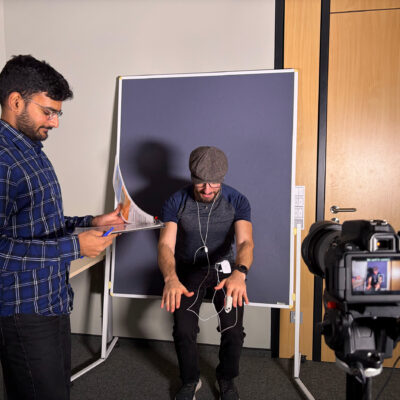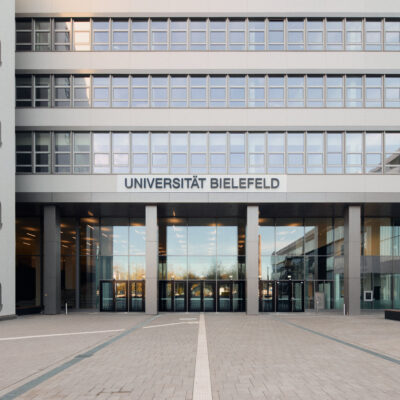Violence against children and its outcomes is one of the core research topics that assistant professor Dr Tobias Hecker has been personally engaged in ever since doing community service in Africa. The psychologist now heads an Emmy Noether junior research group at Bielefeld University funded by the German Research Foundation (DFG). ‘It is very fortunate that interdisciplinary work is so firmly established here,’ he notes. And precisely this is the driving force behind his group’s research progress. There is always an overlap with his second major area of research: emotional and cognitive uncertainties triggered by traumatic experiences.
The topic of his research group is highly solution-oriented: ‘I also address everyday violence in child-rearing practices, and that is something that can most certainly be prevented.’ Another major topic of his research is the violence that affects children from warlike conflicts, which can lead to their becoming refugees, for example. ‘The war in Ukraine is a case in point. As in many other instances, the earlier the traumatized people get help, the easier their treatment.’

© Bielefeld University/S. Jonek
Studies of regions in which violence against children is socially accepted
To explore violence in child-rearing practices more closely, Hecker’s research group is carrying out studies in Tanzania, Uganda, and Ghana. Studies are also being conducted in Haiti and Pakistan, but these are receiving funding from elsewhere. ‘Ours is an international team. Here in Bielefeld, our core team includes two postdoctoral researchers, seven doctoral students, and scholarship holders who also come from the countries in which our studies are being carried out. We also have academic project staff who are employed at the local partner universities.’ The group is coordinated from Bielefeld and comprises almost 20 people. Hecker has built up this network over a number of years. The studies are being carried out in regions where children are cared for in educational institutions or schools in which emotional or physical violence by, for example, teachers, is still socially accepted and widely present today.
Comprehensive mapping of effects of maltreatment
The outcomes that the academics have determined are far-reaching. ‘As a psychologist, my attention focuses primarily on effects on mental health and on cognitive abilities such as academic performance,’ explains Hecker. ‘But I also work with an economist in the project. Constant confrontation with violence also impacts on the individual economic situation and has socio-economic consequences.’ Stress researchers are also part of the team: ‘They look at the effects on a biological/physical level — in other words, stress markers. And that’s probably what defines my research: I take a broad approach to the outcomes.’ Hecker and his team use their findings to develop concrete intervention recommendations. ‘The argument that a violent upbringing is not good for children because they then have psychological problems often has little sway with parents or policymakers in the respective countries. However, when we tell them that violence results in children performing poorly at school or leads to them earning less in their later working life, then they take it seriously.’
Prevention programmes to encourage change towards non-violent child-rearing practices
The academic is well aware that the topic is emotionally charged — as is his motivation. ‘My hope is that this research will be able to help curb violence against children worldwide,’ says Hecker. He and his research group are working on prevention programmes for societies with heightened levels of violence. ‘The programmes we develop and test aim to reduce violence against children. We are striving for a shift to non-violent child-rearing practices within one generation — in other words, with a 30-year perspective. In principle, non-violent child-rearing practices correspond to the mindset that has developed in Germany since the 1970s.’“

© Bielefeld University/S. Jonek
Along with the question of the outcomes of violence, Hecker’s research is also about psychological resistance — resilience — and coping with emotional and cognitive uncertainties. Alongside traumatic experiences such as violence and war, such uncertainties include the outcomes resulting from other conflicts. Among these are migration triggered by conflicts or climate change and its impact on people. ‘In psychology, we see a great variety of reactions. From a clinical psychological perspective, we would say that if people experience too many traumatic situations, they will all eventually be psychologically overwhelmed — but that is not the case.’ The researcher wants to find out why the many people who are able to cope with these uncertainties and challenges are more resilient than others. ‘I am interested in learning what cognitive and emotional processing mechanisms resilient people use to emerge unscathed from violent situations. And I want to look at societies that are particularly affected by these uncertainties.’





